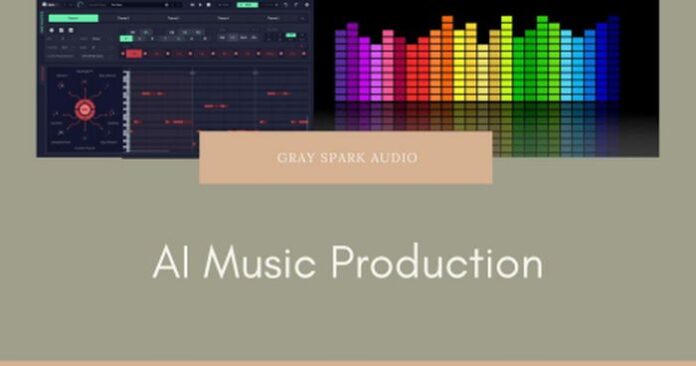Artificial intelligence (AI) is permeating many areas of human endeavor, and the music industry is no exception. AI music production websites use machine learning algorithms to analyze music data and generate new tracks with varying degrees of human input. Some of the benefits of using AI in music production include faster music creation, access to more diverse musical styles, and the ability to generate new sounds and styles. However, there are also some disadvantages to consider, such as the lack of human creativity, the possibility of AI music being too similar to existing music, and the potential for AI to create music that is not up to standard. expected by the audience. You can learn how to make use of AI to produce music from Gray Spark Audio Academy, the best music production course, but also add the human element to it.
The benefits of AI music production
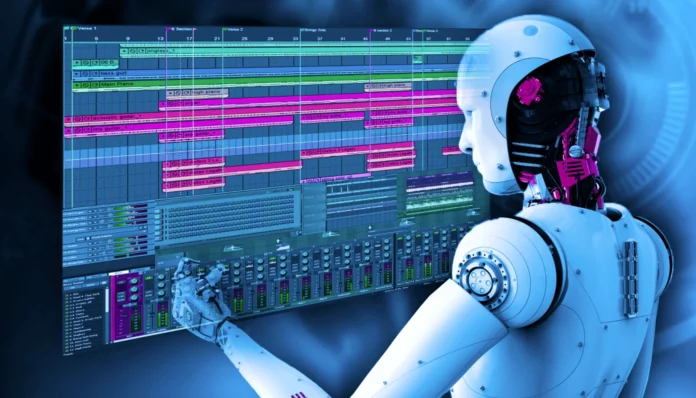
Speed: One of the key benefits of using AI in music production is that it can create new music much faster than a human producer. This can be especially useful for musicians and producers who need to generate new content on short notice.
Diversity: Another benefit of AI music production is that it can produce music in a wide variety of styles and genres far beyond the capabilities of any single human producer. This can lead to the creation of new and innovative musical styles that would be difficult or impossible for humans to create.
New sounds and styles: AI can also generate new sounds and styles that a human could not create. For example, it can analyze existing music and use the data to create new music that incorporates elements from several different genres, resulting in new and innovative sounds.
Disadvantages of AI music production
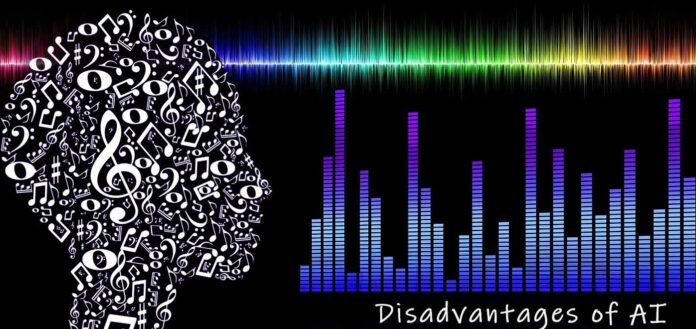
Lack of creativity: One of the biggest drawbacks of AI music production is that it lacks the human touch and creativity that is so essential to music production. The artificial intelligence algorithms used to create music are based on data analysis and mathematical calculations that do not take into account the human emotions and feelings that are so important in music production.
Too similar to existing music: Another downside is that AI-generated music can often sound too similar to existing music. This is because AI algorithms analyze existing music and use the data to create new songs. As a result, new AI-generated music can often sound like a copy of existing music, rather than something truly original.
Quality issues: Finally, there is a risk that AI-generated music will not be of the quality expected by the audience. This is because AI is unable to create music with the same level of emotion and nuance as a human producer, and the music it creates can sometimes sound flat or uninspired.
AI Music Production Tools
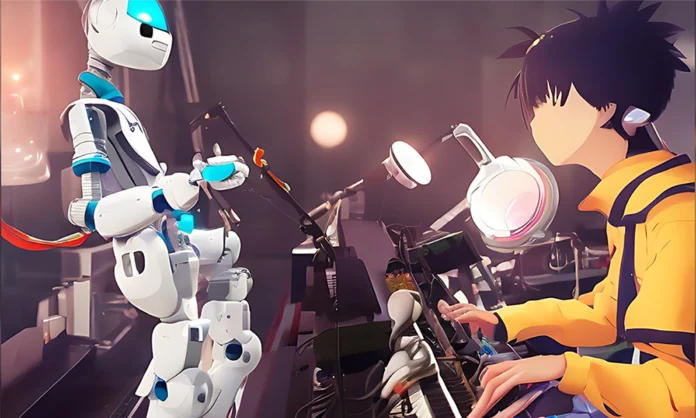
AI music production tools are quickly becoming popular in today’s music industry. These tools use artificial intelligence algorithms to transcribe, arrange and produce music in innovative ways. From a careful analysis of existing music to automation of manual tasks, AI has the power to make novel and unique compositions that would have been difficult for a producer or musician alone.
Chief among these tools is AI music composition software, which can create authentic-sounding songs from a range of genres by inputting chord progressions and rhythms. Also available are AI audio format conversion tools, which can automatically convert audio files from different formats into one another with minimal effort. Furthermore, there are voice synthesis engines capable of transforming any text input into natural-sounding spoken output – perfect for creating unique background vocals on tracks.
Finally, automated mastering software is becoming increasingly common. It uses AI algorithms to analyze mixes and optimize them for final mastering with an easy-to-use interface and clear results in just a few minutes. All these features together promise an exciting future in the world of AI music production!
Popular AI Music Production Examples
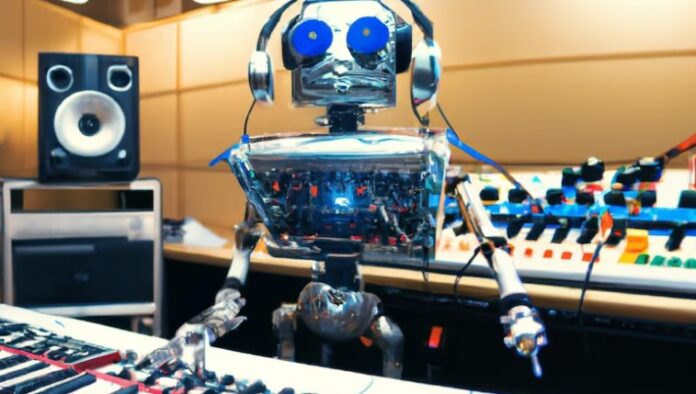
Automatic drum fills are AI programs that generate consistent quality beats from programmed input parameters. These sophisticated beat generators can create complex layerings of rhythms in any genre automatically with minimal human input.
Chord progressions allow musicians to build up to two chords on-the-fly. Using an AI algorithm that monitors the data provided, it is able to create distinct variations of chord progressions which can then be used as the basis for musical composition.
Audio mixing technology has been developed by many companies ranging from GarageBand to Pro Tools and is now widely used in modern recording studios. Most audio mixing solutions utilize a variety of virtual instruments such as synthesizers, samplers, drum machines, and other computerized devices which mimic traditional acoustic instruments in order to create a more lifelike sound experience while achieving quicker production times.
Finally, virtual instruments also come into play with today’s modern automated music production solutions. With increased storage capacities both on laptops and other recording devices, these programs are able to produce increasingly detailed instrumentation that would have otherwise been too labor-intensive or beyond what an acoustic instrument could achieve on its own. With the rise of these tools comes the opportunity for new styles of electronic music never heard before – enriching the world’s collective auditory libraries even further.
Impact on the music industry and jobs
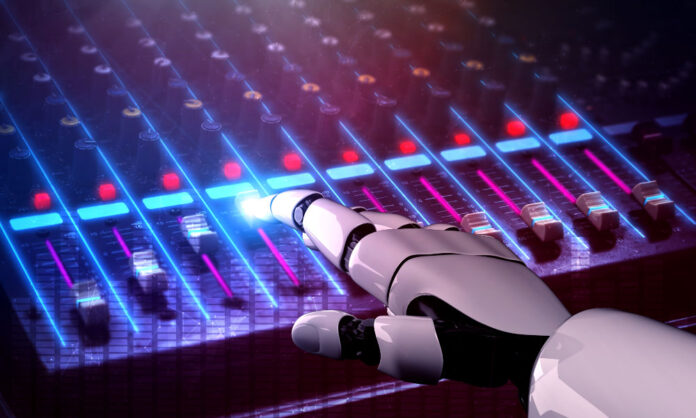
The use of AI in music production is likely to have a significant impact on the music industry and the jobs of musicians and producers. On the one hand, AI music production could lead to faster and more efficient music production, which could lead to increased productivity and profitability of the industry. On the other hand, it could also lead to job losses as human producers and musicians are replaced by AI algorithms. Ultimately, the impact of AI on music production will depend on the level of industry adoption and the willingness of musicians and producers to embrace this new technology.
In conclusion, AI music production websites have the potential to revolutionize the music industry and provide many benefits such as faster music creation, access to a wider range of music styles and the ability to generate new sounds and styles. However, there are also several disadvantages to consider, such as the lack of human creativity, the risk of AI music sounding too similar to existing music, and the potential for AI to produce low-quality music.
